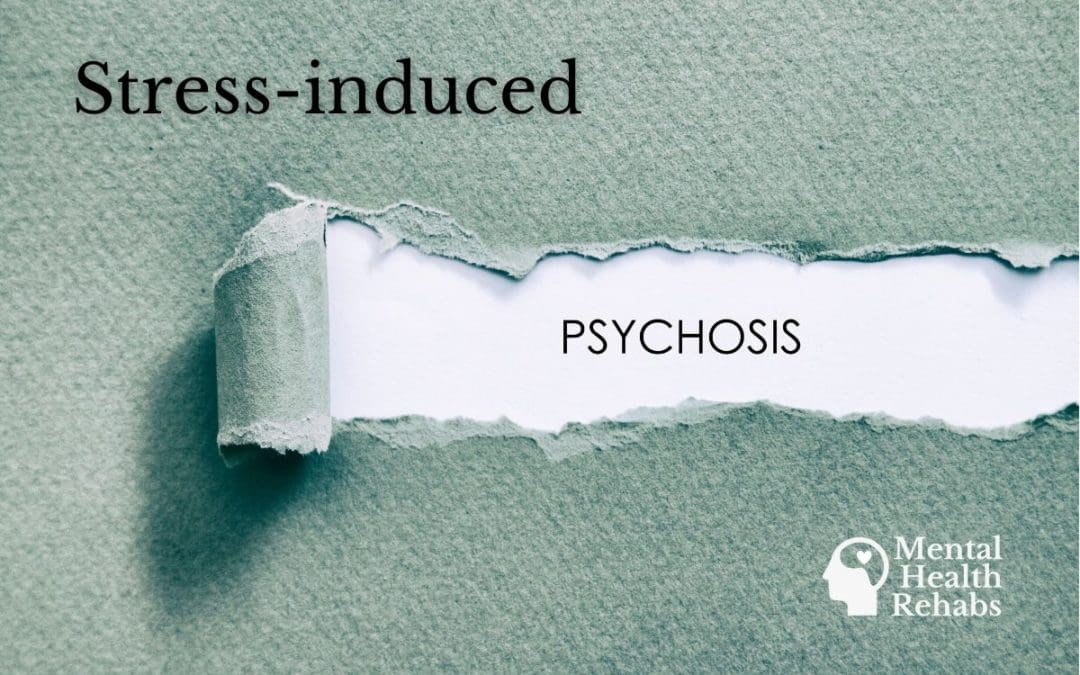What isn’t stress responsible for these days? From premature wrinkles and gray hair to sleep, digestion, and heart problems there’s no shortage of how this sneaky and silent killer causes harm to our bodies. However, the effects of stress aren’t just limited to the physiological–it can seriously mess with our heads too.
While it’s common knowledge that stress can interfere with our moods or alter our behavior, the extent of which can be much more severe than the occasional angry outburst or bout of depression. Stress can go so far as to render our brains unable to distinguish between reality and imaginary, a serious psychiatric condition known as psychosis. How can stress cause psychosis exactly? The answer lies in understanding how stress affects our neurobiology but first, let’s examine psychosis itself.
What is Psychosis?
Psychosis is a severe—but not uncommon—psychiatric condition used to describe when an individual struggles to distinguish between what’s real and what isn’t. This can lead a person to hear, see, or feel things that aren’t really there. The symptoms of stress-induced psychosis are the same as naturally occurring psychosis and can include:
- Hallucinations
- Delusions
- Decreased self-awareness
- Social withdrawal
- High levels of fear or confusion
- Sudden bursts of erratic behavior
People who experience psychosis don’t have difficulty distinguishing between reality all of the time. Psychosis symptoms can come and go in bursts, known as psychotic episodes. Still, even a temporary stress-induced psychosis episode can be extremely debilitating and make it difficult to carry on with one’s day-to-day activities.
Psychosis vs Schizophrenia
Psychosis is closely associated with schizophrenia but they are not the same thing. Whereas schizophrenia is a mental illness, psychosis is a condition—a mental illness symptom—that can be present in a number of mental disorders including bipolar disorder, borderline personality
disorder, dementia, and of course, schizophrenia.
The Cause of Stress-Induced Psychosis
As evidenced above, psychosis is a mental health condition that often accompanies the most severe psychiatric conditions. How is it though, that something as commonplace as stress can rival something as severe as schizophrenia or bipolar disorder to cause such a serious symptom?
First, let’s examine the cause of psychosis. Science has not pinpointed the exact cause, but research has found a correlation to abnormalities in dopamine, glutamine, and GABA functioning. Here’s where stress comes into the picture: Stress–or to be more accurate, cortisol–can cause a domino effect of neurochemical and hormonal responses.
The likes of which can cause one neurochemical’s levels to spike or not be produced at all. Unsurprisingly, all these changes and imbalances can lead to disruptions in the brain’s functioning and aggravate stress. This can exacerbate those neurochemical imbalances and sometimes, create a perfect storm that pushes dopamine, glutamine, or GABA to the levels needed to cause psychosis.
However, stress usually isn’t the sole cause of psychosis. In most cases, an individual will already have a disposition to the condition and stress is simply the catalyst that causes the mental illness to reveal itself (psychosis, like many other mental illnesses, has a strong genetic influence). An exception to this, however, is in instances of extreme trauma which can effectively rewire the brain and forever misalign its flight-or-fight response to an extreme level.
How Stress Affects the Brain
Stress is a normal human emotion that we as a species evolved to keep ourselves safe and out of danger. In small doses, it’s useful and sometimes even helpful (this is called eustress). But extreme or prolonged stress is dangerous and has a direct impact on our brains.
Cortisol, the main chemical produced by stress, has been shown to be toxic to the brain. Several studies have found that chronic stress levels resulted in premature cell death and atrophying of the hippocampus (the part of the brain that deals with memory). The death of brain cells can lead to a physical shrinkage in the brain which in turn, has been correlated to cognitive deficits.
The most concerning finding, however, is that stress can overstimulate the amygdala. This is the oldest part of the human brain and carries some of our most primal instincts. Its main function is to process our emotions, particularly those that cause fear. The amygdala triggers our fight-or-flight response, a hormonal reaction that also shuts down the other parts of our brain that deal with rational thought or self-control. In addition to possibly causing an overactive stress response (which continues this negative cycle), an overactive amygdala could lead to a greater risk of neuropsychic diseases.
If you or a loved one is struggling with extreme stress or experienced a traumatic event, talk to a mental health professional today.
Sources:
https://www.nimh.nih.gov/health/topics/schizophrenia/raise/what-is-psychosis

